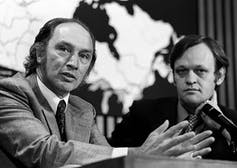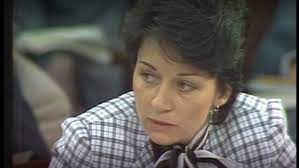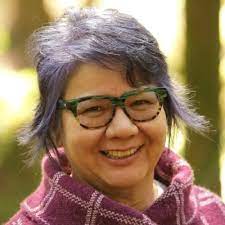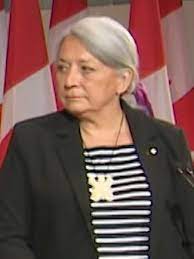
It was 1983. The Canadian Constitution and Charter of Rights and Freedoms, which had become law the year before, faced an important test. A constitutional conference had assembled then prime minister Pierre Trudeau and Indigenous leaders to debate the incorporation of Indigenous rights. Trudeau seemed frustrated that one Indigenous spokeswoman was not satisfied.
“I wish you and your sisters would take it out of your head that somehow we’re deliberately trying to frustrate the concept of equality,” Trudeau said.
“At least in the law, everybody is assured here that we are not. In a sense, you’re equal when you think you’re equal. And if you think you’re unequal, the law won’t change much.”
The camera swish-panned to a young woman, whose mother was Inuk, and her father was non-Indigenous.

Consequently, under the stipulations of the Indian Act, she had lost her Indigenous status. Mary Simon felt that she and those like her were consequently excluded from the Canadian Constitution.
“Mr. Prime Minister, I consider myself an equal,” Simon said unequivocally. “I am an aboriginal representative. … I feel as people we have an interest and that is our collective and individual rights.
“And all I’m saying is that as someone that represents both sides, I’d like to see the equality clause once and for all settled.”
It took 38 years, but in 2019, partly due to Mary Simon’s continued presence and pressure, legislation ensured that Indigenous women received the same recognition under the Constitution as Indigenous men, allowing women to pass along their status to their children and grandchildren.
And now two years later, that same champion of Native causes has become Canada’s 30th Governor General. But Mary Simon didn’t just challenge prime ministers. She has devoted her life to public service, the Arctic, reconciliation and education. She helped negotiate the James Bay Northern Quebec Agreement.
The first and only Arctic ambassador from Canada at the Arctic Council, she worked with circumpolar nations including the U.S., Russia, Finland, Norway, Sweden and Iceland to protect northern environment. She helped create an Arctic University for Indigenous youth as stewards of the region facing the worst effects of climate change.
“Simon is a true north star capable of shining a path to a more inclusive and better future,” wrote one observer.

Coincidentally, this past Canada week, members of the Assembly of First Nations voted RoseAnne Archibald as their grand chief. Remarkably different challenges await her as she attempts to build new relationships between the federal and provincial governments and her national Indigenous assembly.
In the wake of the discovery of hundreds of unmarked graves at former residential schools, perhaps no leader commands greater power or importance than the chief of the AFN. Over the next 100 days, Chief Archibald said she plans to focus on the unmarked burial sites, as well as implementing national action on missing and murdered Indigenous women and girls. Like Simon, Archibald has worked for decades on issues – such as inclusive governance and creating safe and healthy workplaces for all – and now gets the chance to implement change.
“It’s important that 80 per cent of the chiefs across Canada are men, and they elected me,” Archibald said. “That, to me, speaks to the change that is happening, that our brothers understand the importance of creating space.”
There will always be the naysayers who insist these roles are encumbered by centuries of tradition, regulation and symbolic power only. How can a Governor General depart from her viceregal chair when she’s only the figurehead of state? How can the AFN dictate policy when superseded by the 154-year-old Indian Act?
Well, I suggest the same way they have risen to the seats of power at Rideau Hall and around the Assembly of First Nations council table, so will two extraordinary women help to change Canada.

Last week, Governor General appointee Mary Simon was asked how she would serve in a largely apolitical role.
She said she recognized there were limitations. But she quickly added, as the Queen’s representative, that she was very concerned about relations between Indigenous and non-Indigenous Canadians.
“We need to stop to fully recognize and memorialize and come to terms with the atrocities of our collective past that we are learning more about each day,” she said.
The past decade, Canada has attempted to get at the truth about relationships with Indigenous peoples and to find new ways for reconciling our collective mistakes. So, may the way we are governed change for the better because two extraordinarily capable women now represent Queen Elizabeth in Canada and Indigenous women at the AFN.
Others have had a chance – mostly men – but as the glass ceiling begins to shatter because they willed it so, let’s give Mary Simon and RoseAnne Archibald the chance they’ve truly earned.